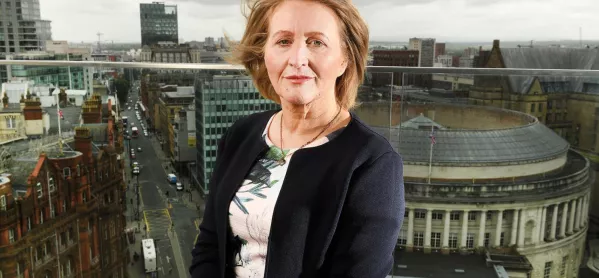
- Home
- ‘Stop squabbling and open schools’, unions and DfE told
‘Stop squabbling and open schools’, unions and DfE told

The government and teaching unions are being urged to “stop squabbling” and focus on getting children back to school as quickly as possible.
All sides need to show a “greater will to work together in the interests of children”, as “the longer schools are closed the greater the impact will be on social mobility”, according to the children’s commissioner for England.
On the day after key players in the education sector met for crunch talks on the subject of reopening schools, Anne Longfield said the Department for Education (DfE) and unions must agree a “staggered, safe return”, accompanied by “rigorous testing” of teachers, pupils and their families.
Revealed: The answers heads need at crunch DfE talks
Crisis meetings: DfE to hold crunch back-to-school talks today
DfE adviser: School return plan could risk virus spread
She added that “we cannot afford to wait for a vaccine” before pupils return to the classroom.
“I am disappointed that the debate about when some primary school kids can return has descended into a squabble between government and the teaching unions,” she said.
“All sides need to show a greater will to work together in the interests of children.
“We know there are thousands of vulnerable children who need to be in school. We know that the longer schools are closed the greater the impact will be on social mobility and that many children are really struggling without seeing their friends and the structure that school brings.
“We need to face the reality that, for a number of reasons, there are hundreds of thousands of children who can’t access meaningful education at home.”
Ms Longfield said that the decision to prioritise children in Reception, Year 1 and Year 6 is “sensible”, however, “we should have an aspiration that all children return to school in some form before the summer”.
She added that school buildings should be used for activities, summer schools and family support over the holidays.
“It is now up to the government and the teaching unions to work together, along with the many teachers who are not in unions, to find solutions in the best interests of children and make this work - while doing all they can keep children and staff safe,” Ms Longfield said.
“We cannot afford to wait for a vaccine, which may never arrive, before children are back in school.
“It’s time to stop squabbling and agree a staggered, safe return that is accompanied by rigorous testing of teachers, children and families.”
In a briefing published today on “the thorny issue of whether children should go back to school”, the children’s commissioner said she accepts that there is no “failsafe” option for reopening schools in the absence of a Covid-19 vaccine.
However, as “the epidemiological benefit of keeping schools closed is unlikely to grow over time” and “the wider social costs will accumulate with each day that passes”, she argued that “at some point the costs must overtake the benefits”.
Ms Longfield said maintaining social distancing among very young children is “clearly not feasible or practical”, but risks have been managed in other countries by:
- Staggering drop-off and pick-up times.
- Regular handwashing and hand sanitising and not allowing children to bring in toys from home.
- Keeping children in small groups of four to six with one teacher per group, and not interacting with children in other groups.
- Doing sessions outside where possible.
- Not allowing parents to enter the building and social distancing of parents at school gates.
She added that “perhaps the most important safety mitigation” will be “large-scale studies” that involve regular testing of teachers, pupils and their families during the phased reopening of schools.
The children’s commissioner said it is “not particuarly meaningful” to enquire as to whether infections or the reproduction rate (R) will increase if schools are reopened.
“It is clearly impossible for infections or R to fall as a result of reopening schools,” she said.
“It is more meaningful to ask how increases in infections and R can be kept under control as schools reopen. The answer is most likely to be found through careful monitoring, with additional mitigations and testing, tracing and isolation (TTI) in place.”
Geoff Barton, general secretary of the Association of School and College Leaders (ASCL), said: “We can assure the children’s commissioner that ASCL is not squabbling with the government but has been taking a constructive approach throughout.
“We are merely asking the government questions about the scientific basis for its approach in order to ensure that everybody can have confidence that it is safe to return, while at the same time supporting our members in preparing to reopen schools for eligible children from the agreed date.
“ASCL and its members are utterly committed to serving the best interests of children.”
The DfE, the teaching unions NEU and NASUWT and the school leaders’ union NAHT have been approached for comment.
Register with Tes and you can read five free articles every month, plus you'll have access to our range of award-winning newsletters.
Keep reading for just £4.90 per month
You've reached your limit of free articles this month. Subscribe for £4.90 per month for three months and get:
- Unlimited access to all Tes magazine content
- Exclusive subscriber-only stories
- Award-winning email newsletters
You've reached your limit of free articles this month. Subscribe for £4.90 per month for three months and get:
- Unlimited access to all Tes magazine content
- Exclusive subscriber-only stories
- Award-winning email newsletters



